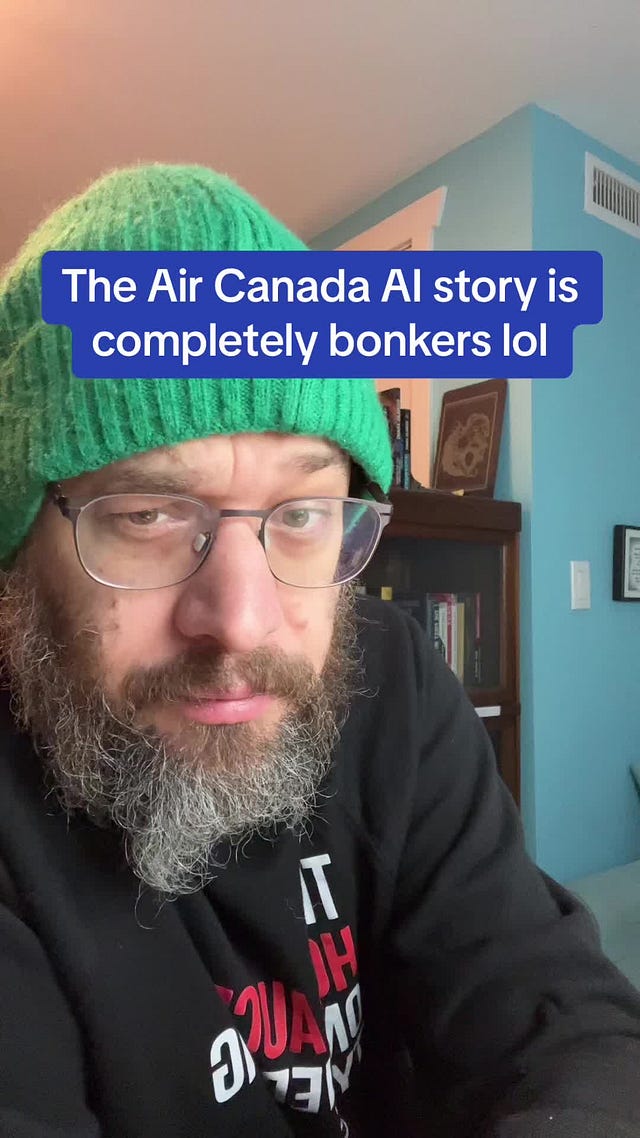Beyond the Influencer Hype - The Accessible Link #21
Why Influencer Marketing in transport and aviation linked to accessibility backfires
Hello everyone,
The blog post didn't last long after the disability community on X (formally Twitter) saw it. The company behind the contentious Passenger Assist app of the British railway industry, Transreport, published an article on their website by an influencer about "How to advocate for yourself on public transport" as a disabled person. The advice included "tips" like "keep some energy in reserve" and "consider your posture".
Disability Twitterati wasn't amused, to say it mildly. Where should the additional energy come from? Why can't disabled people use public transport without considering their posture? Nobody would expect that from non-disabled people before boarding a train.
More and more transport and aviation companies use disabled influencers to promote accessibility and reach the disabled community. It is only rarely successful, however and not always transparent.
Exaggeration and lack of transparency
Some influencers exaggeratedly praise the essential assistance provision - a legal right of disabled passengers in aviation and railway for decades. Sometimes, it's not even clear if this is a paid ad, if there is a business relationship between the company and the influencer or if this (often newly disabled) person is really that excited to be able to use public transport or an airport.
I interviewed Klaus Eck, a pioneer and thought leader in digital communication and marketing strategy, to ask him about the best practice approach. Klaus advised more than 200 companies, including Danone and Bayer Pharmaceuticals. He has been at the forefront of shaping how brands engage with influencers.
Klaus Eck doesn't believe influencers help transport companies repair their image in the disability community. "I don't think it's sensible for transport companies to rely on influencer marketing for the topic of inclusion. Simply because it has little credibility." He said companies often have corporate communication problems. "It's just camouflage if I rely on influencers to compensate for poor corporate communication. That doesn't work at all."
“Authenticity is essential”
But for him, the lack of accessibility or lousy service for a particular customer group, like disabled people, isn't just a communication issue. "It's impossible to solve service problems through communication alone, even with external parties." Authenticity is essential, he says, but a company should still refrain from moaning about their customers. "That's not useful but authentic. It's about engaging in genuine communication and taking the customers' interests seriously, which are important for transport companies."
He also advises against highlighting one good part of the service as brilliant if the rest is generally not so good. "It's not holistic enough to be credible." This is especially important when targeting marginalised groups like disabled people. "If you have a bad service, it's easy to make it look even worse by communicating disingenuously about it with influencers. It damages the reputation." Even if it looks like everyone is talking positively about the company at first, it becomes a failed communication strategy if someone looks closer, says Klaus Eck. "I would even call it fake news if influencers pretend something is better than it is."
Alternative: Influencer relations
Nonetheless, if companies want to work with influencers, they must pick them wisely, says Klaus Eck. "I would only enter into cooperation with influencers with relevant experience, where you can see that they communicate professionally."
And if anything goes wrong? "The company is responsible. It's a business risk if you commission influencers and the communication or goal isn't apparent."
So what's the alternative? Klaus Eck says, "Influencer relations, not marketing". This could include a long-term approach in communications, stakeholder management and engaging with those with an authentic voice.
Some interesting links
A new exhibition explores rail travel and disability at the National Railway Museum in York. "Go As You Please" includes stories of disabled people when travelling. The co-production group members brought their own experiences to the National Railway Museum’s collections of railway marketing posters and artworks from the past century.
'Why Customers Come Last in Bad-Service Britain' is a new report that gives a nationwide snapshot of the views of UK customers and business leaders, showing that they are being let down far too often.
"See Me" is an app developed by Cassie Hames, a blind software developer from Australia. The app is set to transform the public transport experience for Australia’s blind and vision-impaired community when using buses.
Starbucks has a new accessible store design. Lower counters, speech-to-text point-of-sale systems, accessible coffee machines, AIRA support, better lighting and acoustics, customer order status boards, the list is quite long. The new design framework will guide new store construction and renovations going forward.
Something to watch
This video highlights quite well why companies have to use AI carefully, especially with customer groups with specific needs, in this case, someone who experienced a bereavement. I’m sure we will see similar stories with assistance requests or disability-related questions in the near future, especially when it comes to reasonable adjustments.
Something else to watch
‘Is There Anybody Out There?’ is a personal documentary following the search to track down other individuals with the same rare disability as the filmmaker, but that soon becomes a side story.
While navigating daily discrimination, a filmmaker who inhabits and loves her unusual body searches the world for another person like her and explores what it takes to love oneself fiercely despite the pervasiveness of ableism.
And if you think this is a bit of an off-topic tip for this newsletter. Not at all. She interviews one of the first-generation disabled transport activists in the UK.
In the UK, the film is available on Netflix. There are also other platforms where you can watch it.
Some final words
We need to keep our voices safe and out of the hands of glory seekers, self-promoters and/or those overly malleable to influences that harm the disability community. (Jason Olsen)
The Accessible Link is a reader-supported publication. So, if you like what you’re reading, consider to
and
Who is writing this newsletter?
I’m Christiane Link, and I improve the customer experience in aviation, transport, and travel. I worked as a journalist for over two decades and travelled extensively for business and leisure. I’m a wheelchair user. If you want to read more from me, follow me on LinkedIn, Twitter, Bluesky or Mastodon. You can also reply to this email if you want to contact me.
.







